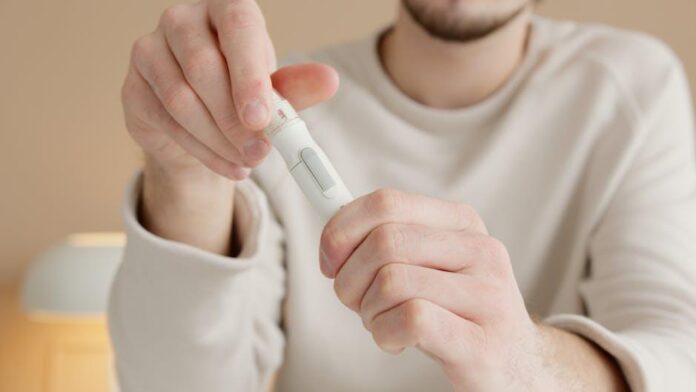
Understanding the Importance of Self-Monitoring Blood Glucose for Diabetes Management
Diabetes is a chronic condition that affects millions of people around the world. It is a disease that occurs when the body does not produce enough insulin or cannot effectively use the insulin it produces. Insulin is a hormone that regulates blood sugar levels and helps the body convert glucose into energy. Without proper management, diabetes can lead to serious complications, such as heart disease, stroke, kidney failure, and blindness.
One of the key components of managing diabetes is monitoring blood glucose levels regularly. Self-monitoring blood glucose (SMBG) is a critical part of diabetes management because it helps people with diabetes track their blood sugar levels and make informed decisions about their diet, exercise, and medication. By monitoring their blood sugar levels regularly, individuals with diabetes can prevent dangerous spikes and dips in blood sugar levels and reduce their risk of complications.
There are several ways to monitor blood glucose levels, including using a blood glucose meter, continuous glucose monitor (CGM), or smartphone apps that track blood sugar levels. Blood glucose meters are the most common method of monitoring blood sugar levels and are easy to use. Individuals with diabetes can check their blood sugar levels by pricking their finger and placing a drop of blood on a test strip that is inserted into the meter. The meter then displays the blood sugar level within seconds.
Continuous glucose monitors (CGMs) are a more advanced way to monitor blood sugar levels. CGMs use a sensor inserted under the skin to measure glucose levels in the blood every few minutes. The sensor transmits this information to a receiver or smartphone app, allowing individuals with diabetes to track their blood sugar levels in real time. CGMs are especially useful for people with type 1 diabetes or those who struggle to maintain stable blood sugar levels.
Self-monitoring blood glucose is important for diabetes management because it allows individuals with diabetes to make informed decisions about their treatment. By tracking blood sugar levels regularly, people with diabetes can identify patterns and trends in their blood sugar levels and adjust their diet, exercise, and medication accordingly. For example, if a person notices that their blood sugar levels are consistently high after eating a certain food, they can make changes to their diet to better control their blood sugar levels.
Self-monitoring blood glucose is also important for preventing hypoglycemia (low blood sugar) and hyperglycemia (high blood sugar). Hypoglycemia can occur when blood sugar levels drop too low, causing symptoms such as dizziness, sweating, confusion, and, in severe cases, loss of consciousness. Hyperglycemia can occur when blood sugar levels are too high, leading to symptoms such as increased thirst, frequent urination, fatigue, and blurred vision. By monitoring blood sugar levels regularly, individuals with diabetes can catch these fluctuations early and take steps to prevent them from becoming serious.
In addition to helping individuals with diabetes manage their condition, self-monitoring blood glucose can also help healthcare providers adjust treatment plans and improve overall diabetes care. By sharing blood sugar data with their healthcare team, individuals with diabetes can receive personalized advice and guidance on how to better manage their condition. Healthcare providers can use this information to monitor the effectiveness of medications, make adjustments to treatment plans, and provide education on lifestyle changes that can improve blood sugar control.
Overall, self-monitoring blood glucose is an essential tool for managing diabetes and preventing complications. By regularly tracking blood sugar levels, individuals with diabetes can make informed decisions about their treatment and lifestyle choices, reduce their risk of hypoglycemia and hyperglycemia, and improve their overall health. If you have diabetes, it is important to work with your healthcare team to develop a monitoring plan that works best for you and to regularly check your blood sugar levels to ensure optimal diabetes management.












